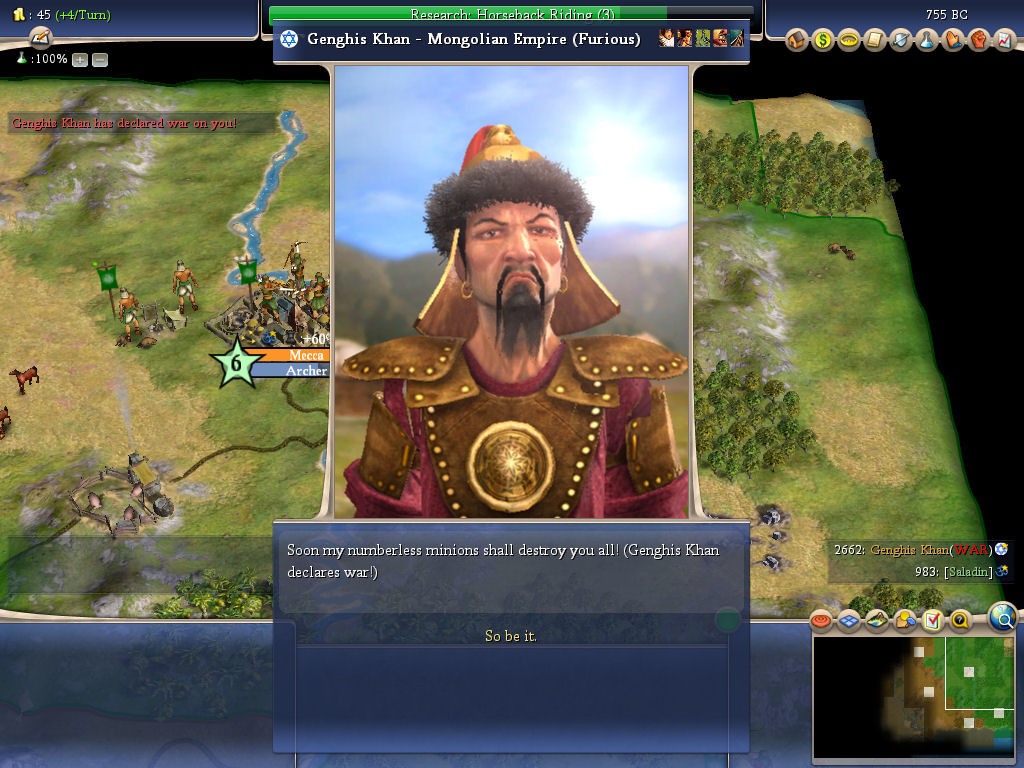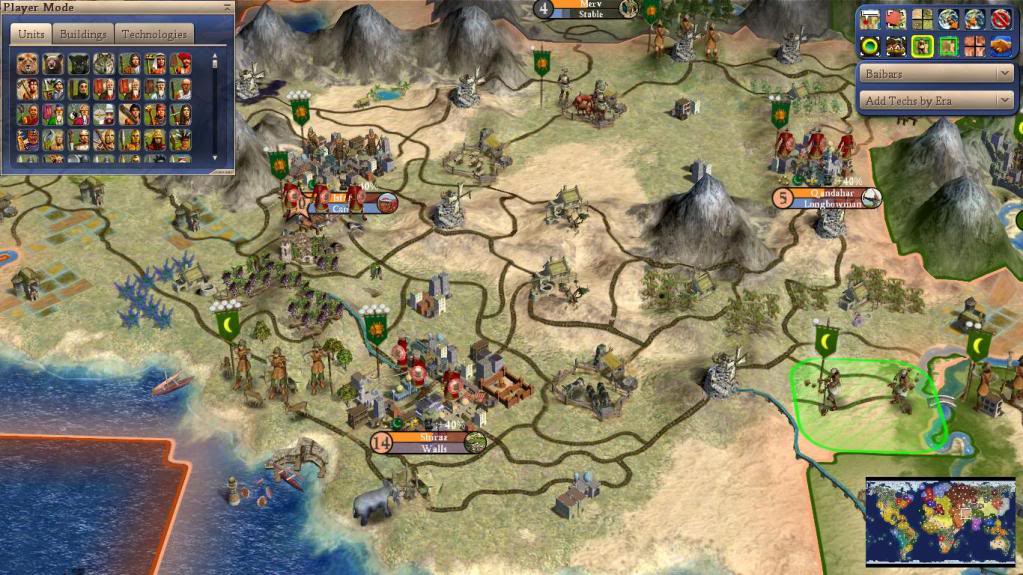Video game can teach you a lot about yourself.
I never gave the Civilization series the old college try. My brother, the more strategic and forward-thinking of the two of us, played almost every entry in the series since it began. He would regale us with the tales of his civilizations, which expanded into great empires via cultural victory, domination, or otherwise. Perhaps the funniest parts arrived via the strange juxtapositions the game constantly throws upon history as you create a new one. Gandhi the traitorous backstabbing warmonger? Stalin, a man of grace and peace? Civilization lets you play out historical scenarios and randomly generated ones with equal aplomb.
However, Sid Meier’s seminal series often goes against everything that makes sense to me in video games. As noted previously, I am not the most strategic and forward-thinking person, I prefer, in my video games, to think intuitively, to figure out the rules as I go. Once I obtain a good feel for the mechanics, then I can make sense of the guides written across the Internet (surely, they exist for most every game on the planet). First and foremost, I think video games should, in some sense, present fun from the get-go with a minimum of fuss; if they become more fun through mechanical complexity after the fact (see: Bayonetta, Romance of the Three Kingdoms, DoDonPachi: Dai-Ou-Jou, Final Fantasy V, Mario Kart 8, The Wonderful 101, etc), then all the better.
Civilization, unfortunately, just does not function in that way, in my experience. Yes, a beginner like me does understand the very basics of city, units, terrain, diplomacy, and other assorted elements. Problem is, I don’t know how to use them well. I don’t understand how to leverage my Civ’s unique ability towards particular kinds of win conditions (In the Civilization I’m playing, IV, there are 6 different ones). I don’t understand where to found the first city, and why my cities start starving quickly after they accelerate in growth. I don’t know what to build, and for what reasons. Why should I build this Wonder over that Wonder? How many cities is the right number of cities? How many workers? What resources do I need for an excellent starting position? Frankly, all of this makes me feel rather dense.

Furthermore, while the Civilopedia helps to a great degree, it does not present anything in the way of guides. The computer recommends certain technologies, of course, but it rarely positions those technologies in a larger picture. You, the player, need to understand your own needs and respond accordingly. Oh look, I have Stone – better go get me a Quarry. Which technology is that, again? How far down the tree does that go? Crap, I guess I’m too far down this line to backtrack before some other civilization founds that religion that I wanted to use. Darnit, I need walls. Why is every single person so unhappy in my city? ARGH BARBARIANS ARE ATTACKING MY SETTLERS THIS IS THE WORSE.
For a person like me, Civilization just makes no intuitive sense at all. I continually enjoy the sneaking suspicion that I’m playing the game wrong, even on Chieftain, and so far my attempts to play well go without much in the way of effectiveness. Perhaps I just fear failure in some fundamental way, or maybe I simply play the game too fast to make good decisions (I should not, for those of you who never played Civilization, that the game IS turn-based). In any event, my usual method of “learning by doing” simply does not prove effective in this sort of environment. Enter the manual:

That’s a pretty big manual, all said. It contains all the essential information, of course, but when’s the last time you actually read a manual to functionally enjoy a video game? I have a feeling that question almost answers itself. Probably not in a long time, I suspect. Video games developed in the modern day often come with vast tutorials meant to cover every inch of the experience, or simply use the old “learn through play” adage. Well, prepare yourself if your game hews close to a decade old, because even the tutorial probably won’t save you. You gotta figure things out for yourself, and here’s the tiny book containing dozens upon dozens of rules! This sounds like a lot of effort to begin enjoyment. I would rather dive in headfirst without any idea where I’m going, and yet grand strategy games go directly against this impulse.
I think this is a good thing. Some games need dense, complicate sets of rules. Complexity can make a game far more interesting in the long run, although that complexity must also come with depth (not just decisions for the sake of decisions, AHEM Civilization V). Doing things, and learning about them later, isn’t always the right way. You wouldn’t try to use a gas grill without making sure there’s no gas leak. You also wouldn’t start using a light around it without double-checking first, unless you had some sort of death wish. Don’t play with fire; figure out what it is first, because putting your hand in it might teach you a lesson you could learn some other way. In the same way, you probably want to study a little bit first before making a leap before looking.
I guess I just realize my own tendencies towards taking action first, and learning later. I often need a more measured approach than that, as life experience shows me. Sometimes, taking that tack yourself will lead you to paths of error and deceit. Nobody’s perfect; everybody needs guidance and help, whether from Christ (the initial step), the Bible, church leaders, friends, and other credible authorities. Do the research first, and maybe you won’t need to cut your own arm off.
29 If your right eye makes you stumble, tear it out and throw it from you; for it is better for you to lose one of the parts of your body, [y]than for your whole body to be thrown into hell. 30 If your right hand makes you stumble, cut it off and throw it from you; for it is better for you to lose one of the parts of your body, than for your whole body to go into hell.
Matthew 5

